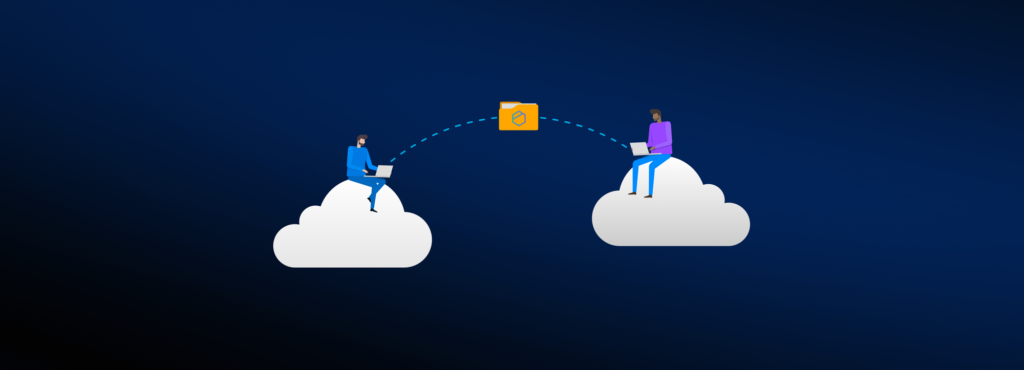
Cloud computing is a framework/infrastructure that provides computing services over the internet. The data will be saved remotely in cloud and can be accessed by your computer or smart phone from anywhere and at any time. Various cloud services are servers, databases, storage, software, analytics, networking, and business intelligence. In cloud computing, instead of buying we can rent the IT resources needed for our purpose. This is basically a virtual platform to store and access your data over the internet.

There are various companies who provides the above-mentioned services, and they are called Cloud providers. Prime responsibility of Cloud provider is ‘security of the cloud’ particularly cloud infrastructure. Few examples of cloud providers are AWS by Amazon, Azure by Microsoft, IBM Cloud, Google cloud platform etc.
`The topics covered in this blog are
- Benefits of Cloud Computing
- Types of Cloud Computing
- Types of Cloud Service
BENEFITS OF CLOUD COMPUTING
Some of the benefits for organizations moving from traditional IT services to cloud computing are.
- Cost Saving: This model reduces the expenses of managing and maintaining the IT infrastructure. The cost involves in Buying the equipment, training staff, rent for the space needed to occupy the IT infrastructure etc is not coming in cloud model.
- Scalability: Flexibility is the catch here. Pay for how much you use and allows you to scale up and scale down as per your requirement.
- Data Security: One of the key advantages is built in data security. Frequent updates and features are released to ensure the security of your data by the provider itself.
- Unlimited Storage Capacity: Cloud offers limitless storage capacity. This space can be either increase or decrease as per user requirements.
- Business Continuity: On an event of a natural disaster or a crisis , accessing your data is crucial to run your business. Cloud provides this benefit as data can be remotely accessible to user so that there will not be any impact to business.
- Data backup & Restore: Cloud provides data backup and disaster recovery options. Data stored in cloud can be accessed remotely over the internet. Data loss is a nightmare for every business. In an event of data loss, don’t get panic. Always approach a professional Data Recovery team like Circuit Blue-The Data Recovery Experts for safe and guaranteed recovery of your data.
Few other benefits are Data backup, Restore data, Quick Speed, Reliability and Rapid Deployment time.
TYPES OF CLOUD COMPUTING
Basically, cloud computing is divided into three categories based on the deployment model viz Public Cloud, Private Cloud and Hybrid Cloud. Each model is different from other and need different level of management and security.
Public Cloud
In this model, the cloud will be owned and operated by third party companies. The computing services will be delivered over the internet. In public cloud it is the cloud provider who manages all software, hardware, and entire infrastructure. In public cloud model the user can access the data over internet with proper access permission. This service will be offered to customer on paid basis based on several factors. Amazon Web Service(AWS) , Azure by Microsoft and Google Cloud are prominent public cloud providers of recent time.
Private Cloud
In private cloud model, the cloud infrastructure is controlled, maintained, and used exclusively by a single business or organization. It could be located at the organization premises or a third-party data centre site. The cloud computing service will be delivered to the users over a private network. Data security is high in this model. VMware and Openstack are some of the companies that gives private cloud technology.
Hybrid Cloud
As the name implies, hybrid cloud is a combination of both public and private clouds. Organization who chooses hybrid cloud can get benefitted the functionality of both models thereby giving their business greater flexibility, security, and more deployment options. The sensitive data and applications will be saved in Private cloud whereas public cloud will be used to share the data externally to user.
TYPES OF CLOUD SERVICE
Cloud services model can be divided into three: Infrastructure as a service (IaaS), Platform as a service (PaaS) and Software as a service (SaaS).
Infrastructure as a Service (IaaS)
In IaaS, the user can either buy or rent the basic cloud infrastructure from cloud providers by paying an amount on demand basis. Here server, storage and networking will be provided by cloud providers. The main subscribers of IaaS are IT administrators. If the organisation requires storage space and virtual machines, IaaS is the best model.
Platform as a Service (PaaS)
In PaaS, the cloud providers provide the services such as environment/platform to perform the developing, testing and managing of software and applications. Here the user need not worry about the investment needed in implementing database, network, storage etc needed for software development. User should maintain only application and data whereas `as other component will be managed by service provider. PaaS is a perfect solution for users such as software development team, data analytics, system management etc.
Software as a Service (SaaS)
Software as a Service refers to the delivery of application or software, basically end-product, through internet. The user can buy this directly on a subscription basis. Here the cloud provider will manage the entire infrastructure and manage the upgrades and security of the application. Some of the examples of SaaS service are Microsoft365, google sheet etc.
For assistance in “Data recovery”, please reach out to Circuit Blue-The Data Recovery Experts @09962000271, @09962000270, @09962000273
Email:- info@circuitblue.in